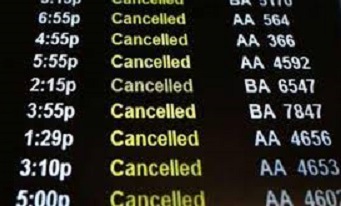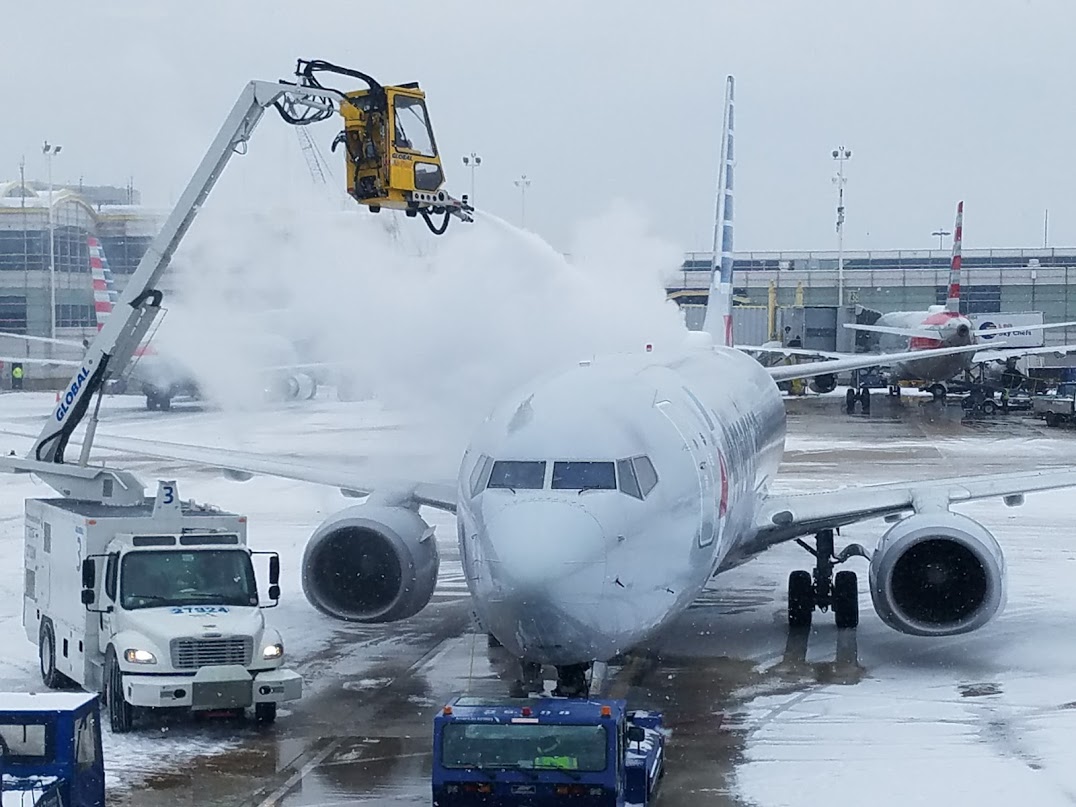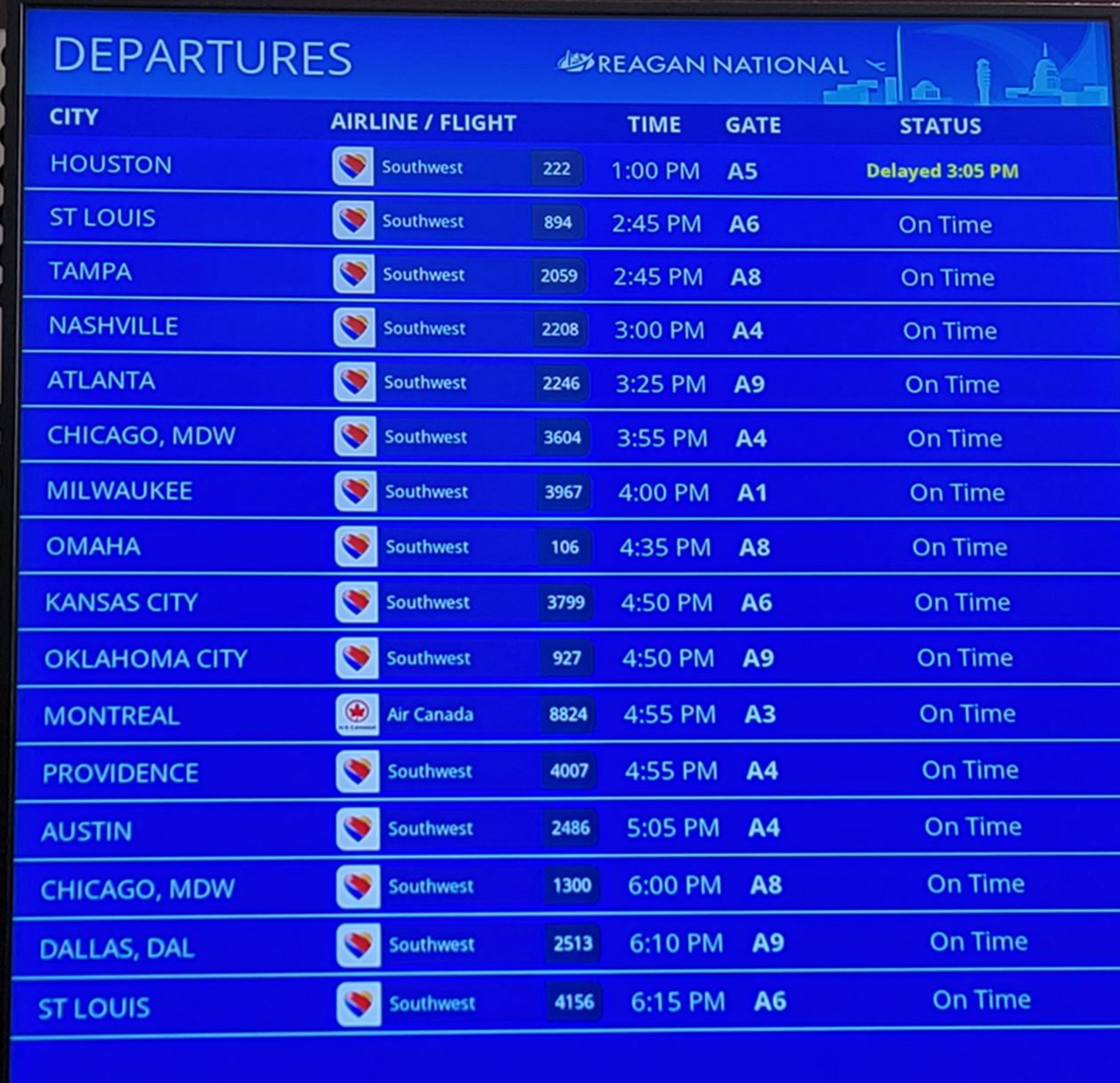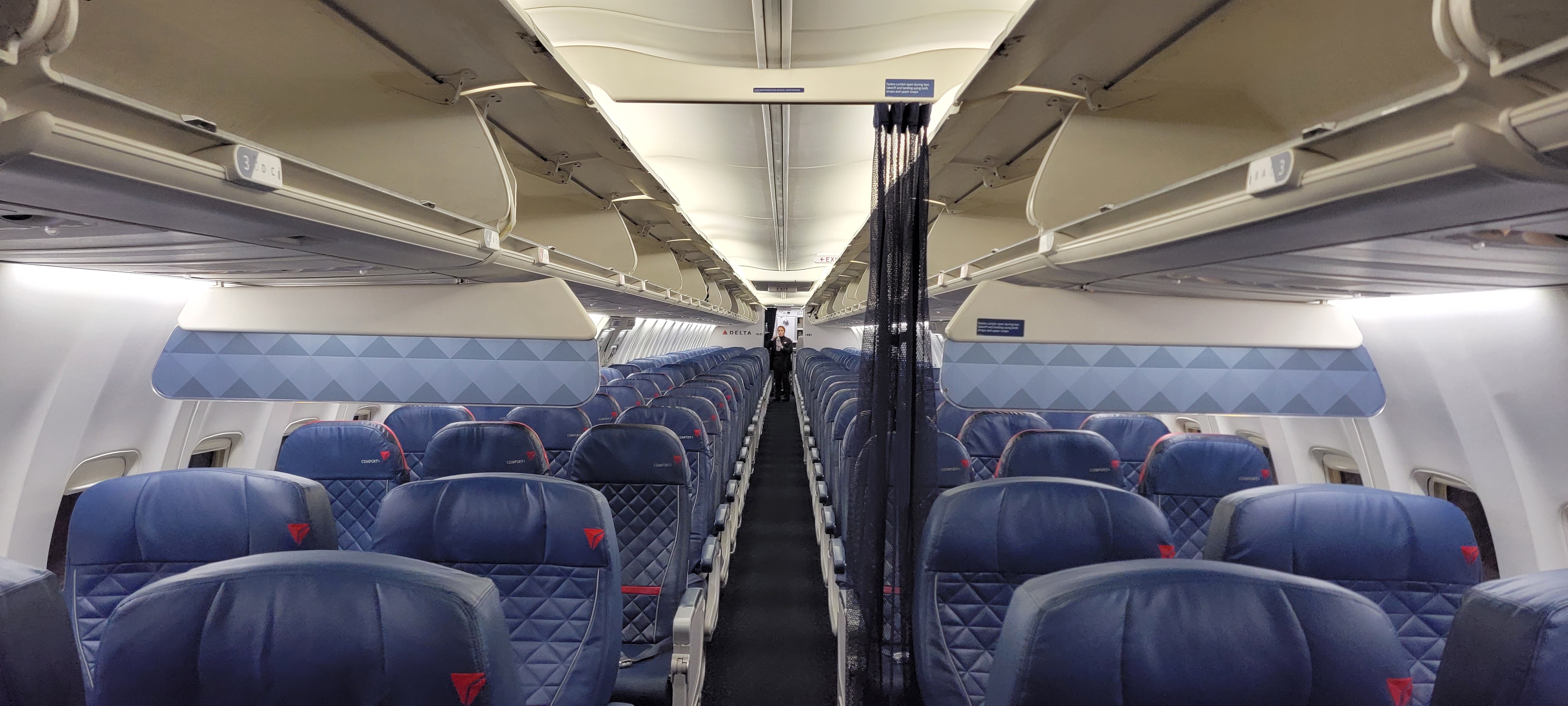A year and a half ago President Biden announced new rules coming to require airlines to pay cash compensation for flight delays and cancellations. Think of it as the U.S.’s answer to Europe’s ‘EU261’ compensation.
They didn’t actually do anything with this while they still could. I wrote at the time whether or not this came to fruition was likely a function of whether the Democrats were re-elected to the Presidency, since the regulatory process would extend into the next administration.
There are a number of initiatives and last minute moves that the Biden administration is trying to take, either to limit changes that a Trump administration might make (such as entering into collective bargaining agreements extending work from home until 2029) or clear out regulatory rulemakings that are in its queue.
So the Biden Department of Transportation has now released an Advance Notice of Proposed Rulemaking for its flight delay compensation rule. This is a head fake. They still haven’t drafted a proposed rule. They’re just asking for comment on how to draft it. So they may or may not ever come out with anything. This lets them say they did something when they really didn’t.

Here’s what the notional proposal suggests,
- Airline compensation should be due when a delay is the responsibility ‘in whole or in part’ of the airline (any weather anywhere is often used as an excuse for delays that have multiple causes)
- Cash compensation to passengers for airline-caused delays:
- “$200-$300 for domestic delays of at least three hours but less than six”
- “$375-$525 for delays of at least six hours but less than nine”
- “$750-$775 for delays of nine hours or more.”
However there’s discussion of whether advance notification of a delay of “a week or two” should obviate the requirement for compensation.
- “$200-$300 for domestic delays of at least three hours but less than six”
- Considering if interline agreements should be required so that airlines can rebook passengers on other carriers – and whether “small airlines should pay less than large airlines” for this space.
- Free rebooking for delays of 3 hours or more domestically and 6 hours internationally, as well as cancellations, and for delays which cause missed connections. This is generally already provided. They’re considering whether airlines should be required to rebook on codeshare partners and on “any carrier that the airline has a commercial agreement to transport the airline’s passengers” when there’s a delay of more than 24 hours.
- Requiring airlines to cover “meals, overnight lodging, and related transportation expenses” for stranded passengers and whether this should take the form of “minimum reimbursement for each service” when airlines don’t provide the service up front (with no receipts required). There’s little discussion of minimum standards for the hotels an airline actually provides, and airlines regularly find barely-habitable rooms that few would want to stay in.
- They’re also considering whether airlines should have to provide accommodations during extreme weather events (that obviously aren’t an airline’s fault).

- Finally there’s also discussion of incentivizing rebooking reciprocity between large and small airlines (and preventing large airlines from blocking this); notification rules about passenger rights; and customer service standards for wait times to receive these benefits.
Note though that the Trump administration might halt plans for such a rule at DOT… if a Trump DOT even drafts one. Even an actual Notice of Proposed Rulemaking (which this isn’t) doesn’t always translate into a final rule in any case. And final rules can look very different than the proposed rule, after adjusting for comments received (and lobbying).

United Airlines CEO Scott Kirby says this compensation creates a bad incentives for airlines to be cautious and take delays or cancel flights for safety – so compensation compromises safety. While that’s the obvious incentive created, this hasn’t happened in the EU but airlines there often ignore the rule.
The Biden DOT, for their part, says this is simply an incentive for airlines to operate on time. (Delays are highly costly to begin with, of course, so they are already well-incentivized.)

This new rule would represent a significant shift in power to consumers and a huge expense to airlines. It would also give unions, especially pilot unions and mechanics unions, tremendous power – because their members exercise discretion that can delay flights for small details, which could cost tens of thousands of dollars per flight in many cases if this comes to fruition.
Another concern is higher airfares. One way to think of this is the government requiring consumers to buy ‘delay insurance’ with every ticket. Right now consumers travel without this coverage, and it does not come free. Under the rule, it would be required.
If a Trump Department of Transportation does ultimately choose to pursue this rule, I would still expect litigation to determine the final outcome.
- I do not believe that the Department of Transportation can do this by regulation without authorization by Congress, purely based on promoting ‘safe and efficient’ air travel or protecting consumers from ‘unfair and deceptive’ practices.
- Indeed, the Biden administration sent legislation to Congress to require it. Why seek the authority if they already have it?
- The 5th Circuit Court of Appeals has ruled that a planned DOT regulation on fee disclosure exceeds the agency’s authority.

Of course, an administration that seeks to reduce the delays experienced by passengers, which is an issue that will only grow in the future as passenger numbers and flights rise, would focus on the actual throughput of the system: more gates, runways and taxiways at congested airports; more air traffic controllers; better technology (and management) for the air traffic control system.


I love this, but sadly, it is going nowhere… the pro-oligarch part(ies) will kill this.
We desperately need an EU261 equivalent in the United States.
The DOT is heading in the right direction here. These proposed rules would protect and benefit the traveling public, and do not meaningfully harm these businesses. The European/Canadian airlines did not go bankrupt after EU261/APPR. If a cost increase is passed onto the consumer, then so be it, and let the free market decide. Travel, in most cases, is a luxury, after all.
Of course, we should expect the airlines and industry lobbyists to oppose this, but they are being greedy and downright lazy. Haven’t the airlines had enough stock buybacks already? Time to put people over profits for once.
Relatedly, personal travel insurance is simply not good enough. Check the fine-print on your policies. For mechanical issues, in many cases, the delay must be at least 72 hours or affect 50% of your trip. That’s insane. Realize that you are practically ‘self-insuring’ under those circumstances.
Hoping for better days. Safe travels everyone.
How about Pete Buttigieg pays us delay compensation when FAA ATC understaffing causes delays? He’s had four years to recruit and train enough ATC staff and has failed utterly.
@John how does the free market decide if the government mandates it for all? Why do you want to make air travel more expensive for everyone? To encourage driving? And what does this have to do with stock buybacks? Or people over profits? Airlines are supposed to generate profits.
Government should stay in their lane and focus on fixing the things they control, such as the ATC system, which is a disgrace.
Anyone but the most delusional leftist will see that anything an administration puts forth in the months before a new admin takes over is not going to happen, and they were never serious about actually doing it in the first place, they’re just now pretending they want to now for political purposes only. Typical dishonest, disingenuous Dem behavior. Good riddance to bad trash.
Lmao getting some angry boomer vibes from some of these commenters. Stop drinking the MSM kool aid your next president is a criminal.
Similar to 401k enrollment change, they should just list the coverage as a separate item, but make it provided by default and requires explicit opt-out for consumers that would like to take the risk.
On the other hand, the incentive structure is crooked in unchecked capitalism. The target is profit. Service is just an investment to get a better profit. Unless the extra service is destined to make good profit, there’s little incentive for them to even try. So a better way to implement this may be a lower baseline requirement, with a deprecating tax incentive for the airlines to try out a higher compensation coverage as a selling point. And use that data to set the future requirement.
I absolutely agree that a baseline coverage needs to be required. But I tend to believe the market will come up with a better number than what the government pulled out of limited models.
@Carl
It’s always been about the money. Time is money. Consumers pay a premium for specific flights on particular dates and times, class of service, etc. When we do not get what we paid for, a partial refund or flight credit is often not enough.
If you travel frequently, then you must have experienced a significantly delayed flight or a cancellation under the airline’s control, like a mechanical or a staffing issue, which caused you to lose hundreds or thousands of dollars. In most cases, if your itinerary originated in the US, you have little recourse but to pay this price personally.
At the very least, new rules like what was proposed would help cover the travel insurance premiums we pay to protect against loss of expensive prepaid accommodations and tours at our destination.
By setting a minimum standard and by there being financial consequences, airlines would have better incentives to operate more reliably. The strong will survive. It’s actually still very much free market, just with reasonable guardrails.
Either way, all this is moot because the next administration is definitely not going to let this pass.
I doubt such a rule would be compatible with $49 fares.
@nsx
As you probably already know, Ryanair is an ULCC, which does in-fact offer such $49 fares (or even less expensive), has successfully operated throughout the EU for many years, and is subject to similar compensation requirements for delays and cancellations under its control by the EU/UK261 laws.
It can be done. Ryanair is not the only one either. And no, none of them are perfect, so let’s now straw-man around here. Why must we always seemingly give up on ourselves so easily in the US? We are self-loathing, apparently.
Having just had a nearly 14 hour delay on a United flight to Rio–plus two unanticipated overnights before I got there, I am all in favor of this. Yes, there are mechanical issues (although this was just a leaking lav and after something like 14 hours, UA decided to cut off the water in the lav) However, the problem, which rerquired monetary payments may help solve, is the poor organization to handle them, turning what in this case could have been a 3-4 hour delay into what it became this marathon. (Treatment in Sao Paulo Brazil, by the way was much better than in IAD, where there was one person trying to handle overnight accomodations for 200-250 people some of whom may have arrived at their hotel only in time to shower and leave again). UA did provide food (after 2 hours), food vouchers, a hotel and transport for those who wanted to wait at home. I had understood this was already legally required but I guess not.
Since most international flights from IAD leave late, however frequent or infrequent(happened to me once before) these delays are, UA never has the staff present to handle them. Maybe losing real money, and not miles or credits which many will not use, will inspire airlines to be prepared with contingency plans. The Brazilians on the flight are suing through local law firms specialized in litigation with airlines. How they will do no idea, but I bet UA and other non-Brazilian airlines, already have a flock of lawyers to ensure the rewards are minimal and much delayed.
Dream on libs – this is DOA and hopefully mayor Pete crawls back under his rock soon and we never hear from him again. What a lame joke
The USA desperately needs such rules. The EU has gobs of ULCC’s that have to abide by similar terms and it works out just fine. I suspect the incoming administration will avoid rules like this at any cost since it would actually help normal people but I’d love to be wrong about that.
@AC
Everyone admits and realizes this is not happening. If it’s only the ‘libs’ that want this, I’m curious why the rest of us supposedly do not. Is it a pride in ‘pulling one’s self up by their bootstraps’ kinda thing? Or is it just trolling. I like a good laugh, and I get the tropes, but if you guys are serious, that just seems like a self-own. Greater consumer protections benefit the traveling public. It really should not be left vs. right, or partisan at all. If the other party can get this done, I’m happy too. I just want this to be better for all of us.
This was an issue to get an incremental number of votes for the party currently in control. My guess is that it was never serious because if you follow the money, donations came from the companies that would be hurt by such legislation.
@John – Have you noticed that Retired “AC” Gambler always, always takes the side against normal people? You can argue between the troll/sociopath label for him but it doesn’t reverse the comments utter lack of connection with regular people. While it’s admirable for you to attempt to bring him back to the normal fold it’s just way too late. Props to you for trying though. It speaks well of you as a human being.
@Christian
Yeah, I’ve realized, and it’s honestly fine, since such banter allows those of us who do care deeply about this topic to examine our own positions, appreciate some potential weaknesses, and get ready for the next battle in this long war toward’s incremental progress.
In reality, a few thousand dollars in campaign donations, a fancy steak dinner or luxury fishing trip, and the threat of a primary challenge, is usually all it takes to stall much progress on any legislative matter anyway. We have a corrupt system, and the common person pays the price. So, it’s easy to become cynical, to believe or parrot a convenient lie, or to blame someone else for a problem, rather than to actually fix it.
Yet, on this silly issue (passenger rights and compensation schemes), I will not let it go. I cannot forget dishing out thousands of dollars on last-minute alternative flights when an airline failed me. You would not forget a night spent stranded at an airport. I just think people should be helped in those situations. It starts with better rules. Might have to wait a while, if ever. Keep fighting the good fight.
Well written article. As Gary has indicated, the externalities involved (Safety and Unions to name two) weigh heavily on developing a just system. He also points out correctly that money is not free, any system which appears to be biased toward the consumer isn’t really, as then airfares for all will need to rise in order to cover the financial awards doled out to the few. His last paragraph is spot on, if we really want to raise the performance of the entire air travel system, then investments that do that are the best approach.
Wow, a lot of you sure do love to bootlick. Some of you are either willfully ignorant, paid to shill, or must own a lot of airline stocks. And if you don’t have tens of millions of dollars, sir, you are not the 1%. No, you’re much closer to being a peasant, like the rest of us.
This is just like the inflation debate, where for-profit companies are raising prices, regardless of their costs, while they profit immensely, then distracting us from actual solutions while we in-fight over nonsense. pRiCe Of EgGs.
I don’t like having to internalize the costs for the airlines understandable cost-control features that cause me travel disruptions, and so I welcome there being compensation due when I am hit by material delays caused by the airline pursuing profit-maximization. Just as the airlines are entitled to profit-maximizing, so should I be entitled to compensation for my own cost-minimizing when an airline fails to deliver me on time.
nsx should explain why this would be incompatible with $49 fares?
Even earlier this year — and long after the implementation of EC 261/2004 — I still encounter some domestic and international fares in the $49 (or sometimes even lower) base fare range.
If an airline runs a very timely and reliable operation and only pays out compensation when a customer cares to file for the compensation, then the airline can fly with some such low fares without it being a net drag on the airline’s profit margins and profits.
I still encounter some domestic and international fares in the $49 (or sometimes even lower) base fare range within Europe where EC 261/2004 is applicable.
First and foremost, the majority of delays are weather/ATC related so this would not apply. Second, planes break. Airlines should be required to provide food vouchers (beyond the paltry $12 they give out now) and lodging if a forced overnight, which they do.
When you fly it should be with the understanding delays are part of the process. Therefore plan for time sensitive issues.
FYI I hope everyone realizes, as Gary pointed out, that if such a law (or any other one that provides compensation to passengers) passes it will raise prices. Just like the insurance industry and others models future spend based on historical patterns (insurance has IBNR to project items that already occurred they aren’t aware of yet) the airline industry will model the anticipated spend based on historical performance and build that into their ticket cost.
These aren’t charities- they are for profit businesses accountable to shareholders and will act accordingly.
For those that want to slam me for not relating to “regular people” I am a former long term corporate senior executive and am very well financially set. Also have traveled around 8 million miles during my career and ah e consulted for the airline industry so understand it well. Most of you want something for nothing or don’t want to incur normal risk associated with day to day activities which is sad.
Suppliers in competitive industries can only raise prices so much before other firms or industries eat into their bread and butter.
And I’ve been hit by no massive price increases from EC 261/2004. Although now maybe some clown wants to try to blame loyalty program devaluations on that, but then the clown will have to contend with Delta’s being the leader in loyalty program point devaluations even as Delta is less subject to EC 261/2004 than European carriers.
I am not employed by an airline but I used to be.Weather cannot be controlled by the airlines. Mechanical delays are controllable to an extent, but most mainline carriers operate at close to 99% dispatch reliability. Bags lost are the carriers fault.
When we catch a train or a bus , and there is a delay, no credit is offered. I would say be careful with these demands, the carriers will have no option but to put the cost of providing thousands of credits onto ticket prices. And rather than cash, airlines points should also be considered.
In some parts of the world when we catch a train or a bus and there is a delay, credit is offered.
A lot of the delays and misconnections with airlines are because the airlines have an understandable commercial incentive to not have a lot of excess capacity in equipment and staffing, and so a lot of the weather-related and mechanical-related flight delays, misconnects and cancellations are a direct consequence of commercial decisions to try to run a more lean operation to its max.
I hope that if regulations are enacted that they will stop the lying about the weather by the airlines so that they can get out of paying for room and board when flights are delayed or canceled. There are legitimate weather situations but not positioning crews correctly is not the fault of the passengers. If other airlines are getting the flights out of an airport such as O’Hare, how can one airline blame weather as the problem?